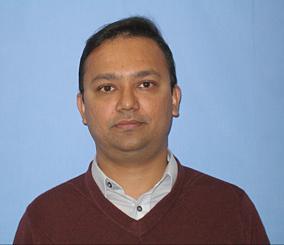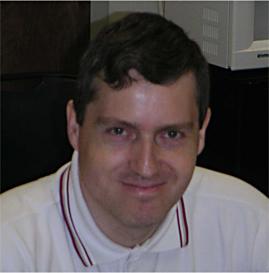Two University physics professors won a $250,000 grant in early October for a research proposal probing for answers to a subject for which mankind has no definitive answers — the origin of the universe.
Professors Parampreet Singh and Peter Diener’s research proposal was one of 20 to be selected in the New Frontiers in Astronomy and Cosmology International Grant and Essay Competition. The John Templeton Foundation sponsored the competition, providing more than $4 million in grants to researchers across the world.
There were more than 300 applicants, Singh said.
The competition asked for a proposal to one of four questions. Diener and Singh chose, “What was the earliest state of the universe?”
And it was an obvious choice, Singh said.
“We are experts in this kind of physics,” Singh said. “And there are questions that are still not answered.”
Singh researches quantum cosmology, a field that studies quantum mechanics in the formation of the universe, and Diener is an expert in relativistic astrophysics, which deals with gravitational waves.
Though Einstein’s theory of general relativity is usually accepted as predicting the universe began with a big bang, there are still many unanswered fundamental questions about the origin of the universe, Singh said.
Einstein’s theory predicts the world began with a big bang, an event where all matter and energy were concentrated at one point, Diener said. Einstein’s theory falls apart at this point — which is called a singularity — because it cannot predict what the earliest state of the universe was.
Singh said they will utilize a theory called loop quantum gravity, under which the universe did not begin with a big bang.
“It deals with big bounces instead of a big bang,” he said.
Diener described the theory, saying to imagine the world becoming smaller and smaller but not diminishing to nothing; rather, it would expand again. In short, it implies the first cosmological event of our universe was the collapse of another.
Having the universe diminish to nothing would create an infinite calculation, and “whenever there is an infinite, there’s a problem with the theory,” Singh said.
To test theories, Singh said they derive many equations on a white board before putting them into supercomputers for testing.
Along with contributing to a better understanding of the world, the grant money will create two jobs — one for a graduate assistant and another for a post-doctoral degree researcher.
Once the research is complete, Singh and Diener said they will likely find new questions to ask, opening new doors to new research.






